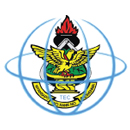The overall objective of the 2GBIONRG project is to develop sustainable technologies for production of 2nd generation biofuels (biogas, bioethanol and biodiesel) from lignocellulosic waste material in developing countries in Africa. In addition it is also to utilize residuals from the production as fertilizer improving soil fertility and food security. The suggested technologies will make it possible to switch from a society depending more and more on fossil energy to a modern biomass based society. Ghana will be used as a model country to develop and adopt sustainable biofuel production systems for three different types of communities: rural villages, cooperatives and large towns.
The project is organized in seven work packages, namely:
- Assessment and mapping of waste resources – This will identify the available lignocellulosic materials/wastes in Ghana. This provides the foundation of the project and the potentials for using the different technologies.
- Sorting and pretreatment of waste resources – Waste fractions will be characterized. To enhance the biological conversion of the organic fraction of biomasses to biofuels different pretreatment methods will be investigated and developed with focus in low tech methods that can be used in developing countries.
- Production of 2nd generation biofuels – Three 2nd generation biofuels are in focus: bioethanol, biodiesel and biogas. The energy potentials of different waste fractions will be determined and suitable technologies will be developed for conversion of the wastes. Also treatment of waste streams from the production will be investigated.
- Assessment of the residues from 2nd generation biofuel production – To add value to the whole process, the project would evaluate the residuals from the 2nd generation biofuel production as fertilizer using soil application of nutrient-rich residues gained from biofuel production.
- Sustainability assessment – The assessment contains the following: mapping of energy supply and demand in Ghana, model for integrated energy, environmental and financial analysis of the 2nd generation biofuel production systems, analysis of economy of scale in relation to decentralized and centralized systems and Green House Gas (GHG) balances and carbon footprints.
- Technology implementation involving participatory research – Strategic technology transfer involving participatory implementation strategies allows specialists and end-users (larger companies as well as SMEs, including farmers) to choose and develop, in their own environment, the technology and integrative concept best suited to their needs and conditions. This includes hands-on technology demonstration.
- Project management.
The Energy Center (TEC) is one of four partners in the project which also includes the Technical University of Denmark (DTU), Denmark; Center for Scientific and Industrial Research, Ghana; and Zoomlion Ghana Limited. In all, six (6) PhD students are being trained on the project: 2 Danish students at DTU and 4 Ghanaian students at KNUST. The Energy Center is hosting one of the PhD Students in the person of Mr Francis Kemausuor of the Department of Agricultural Engineering, KNUST. His PhD working topic is ‘Assessment of the Potential and Socio-Economic Sustainability of Biofuel Production in Ghana’.
TEC is supported with a budget of DKK 507,589 (about 68,000 Euros). The project began in June 2011 and is running for 4 years.
